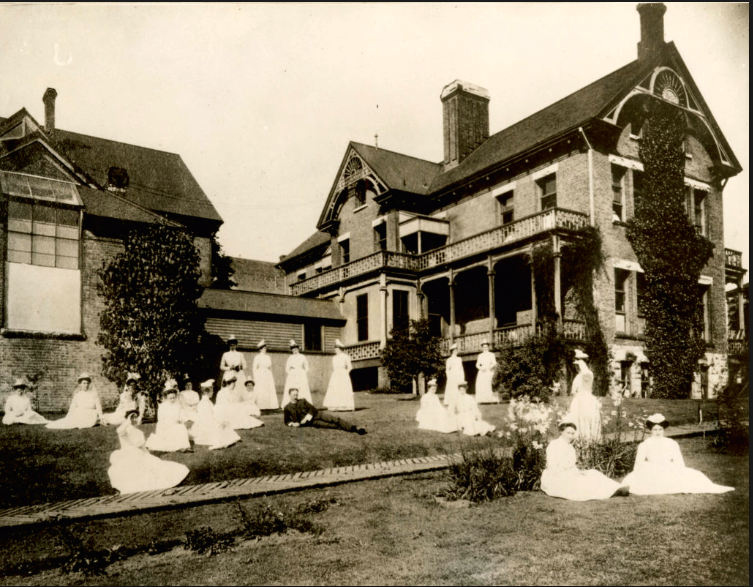 From Vancouver Exposed: Searching for the City’s Hidden History
From Vancouver Exposed: Searching for the City’s Hidden History
Last week, Michael Kluckner and I were over at Tom Carter’s studio looking out his seventh storey window onto the EasyPark—a cavernous concrete lot that fronts West Pender and takes up the entire city block from Cambie to Beatty Streets.
In 2013, Michael had the dubious honour (my words) of presenting the parking lot with a heritage plaque on behalf of Places That Matter.
He wasn’t recognizing the parking lot of course, but the buildings that were once Vancouver’s first city hospital and included a men’s surgical ward, a maternity ward, a tuberculosis ward, and the city morgue which faced Beatty Street.
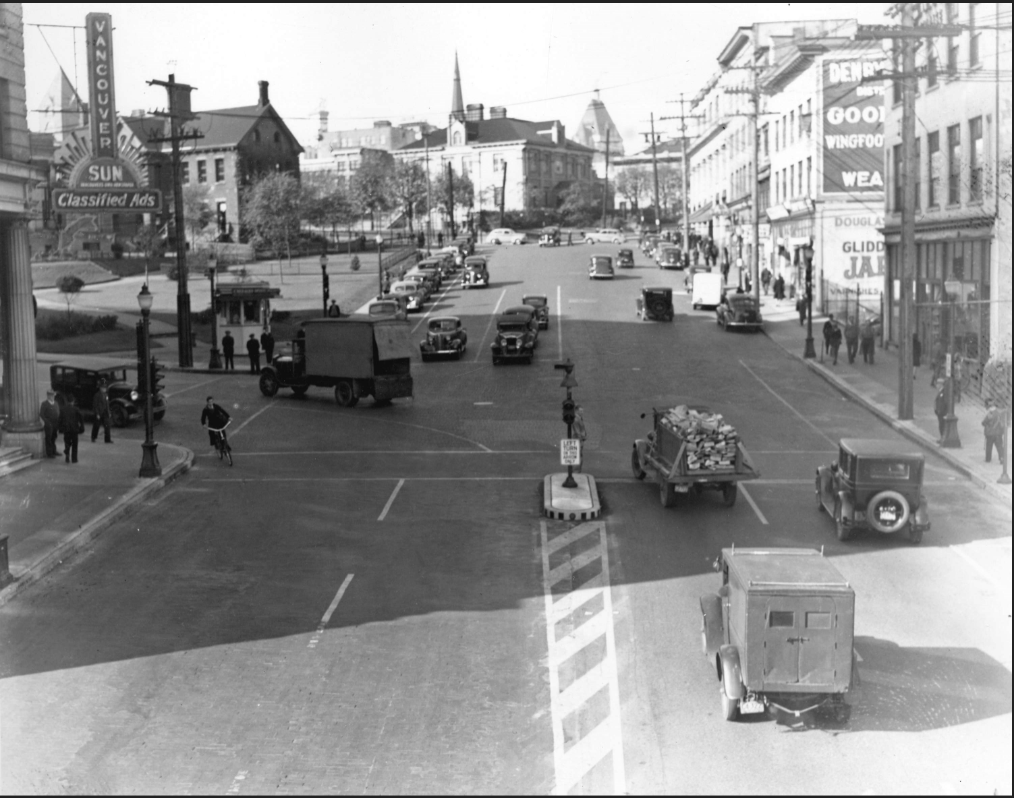
If we’d been looking out Tom’s window back in 1912, we would have had a great view of the courthouse in what’s now Victory Square, the shiny new Dominion Building, and the former city hospital, built in 1888, which according to Michael’s Vancouver: The Way it Was consisted of a compound of brick buildings with wooden balconies set back from the street, flower gardens and a picket fence.
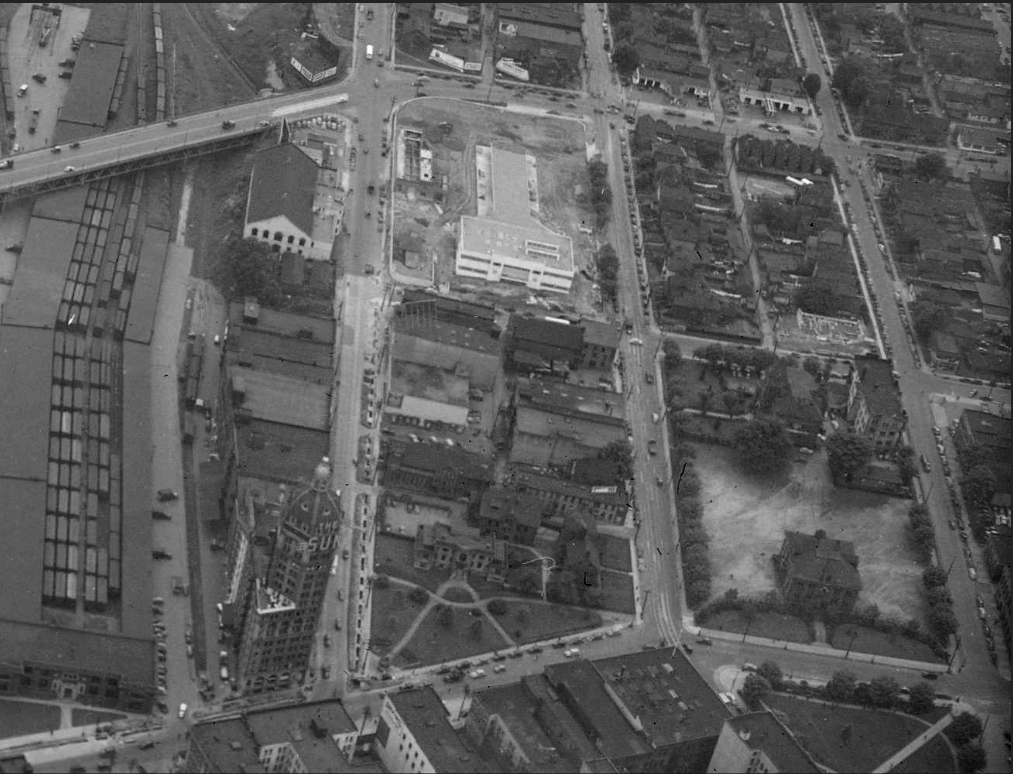
By the turn of the century, the 50-bed hospital was too small for Vancouver’s growing population and a new hospital was built in Fairview in 1906 which became the Vancouver General Hospital as we know it now.
The first city hospital was repurposed into the headquarters for McGill University College (BC). And that’s another interesting story.
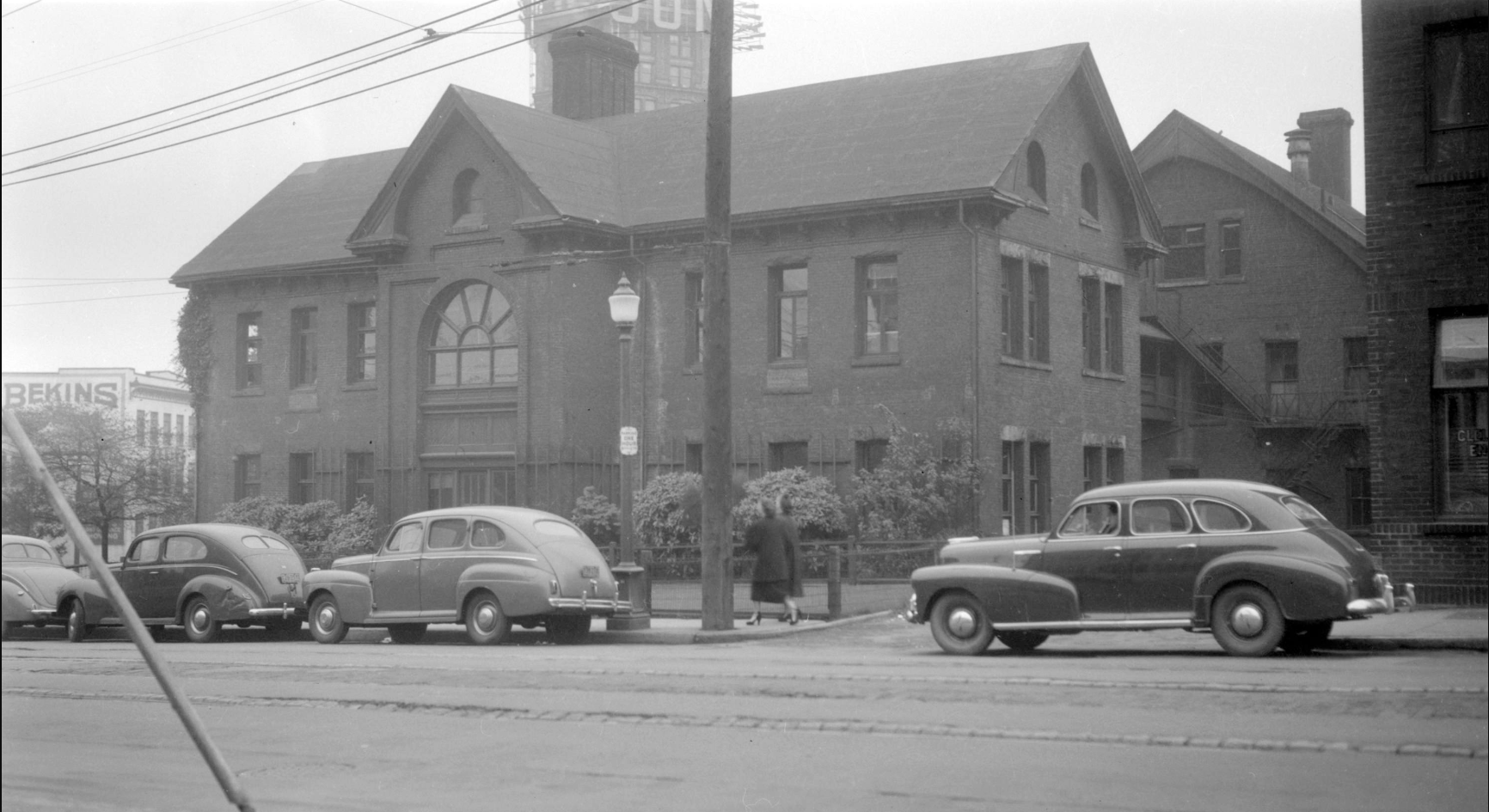
In 1899, Vancouver High School joined forces with McGill to offer first year arts courses. Six years later the school moved to fancy new digs at Oak and 12th Avenue (later renamed King Edward High School), and McGill moved into the former hospital buildings. McGill stayed in the old hospital until 1911 and faded from the landscape after UBC opened in 1915.
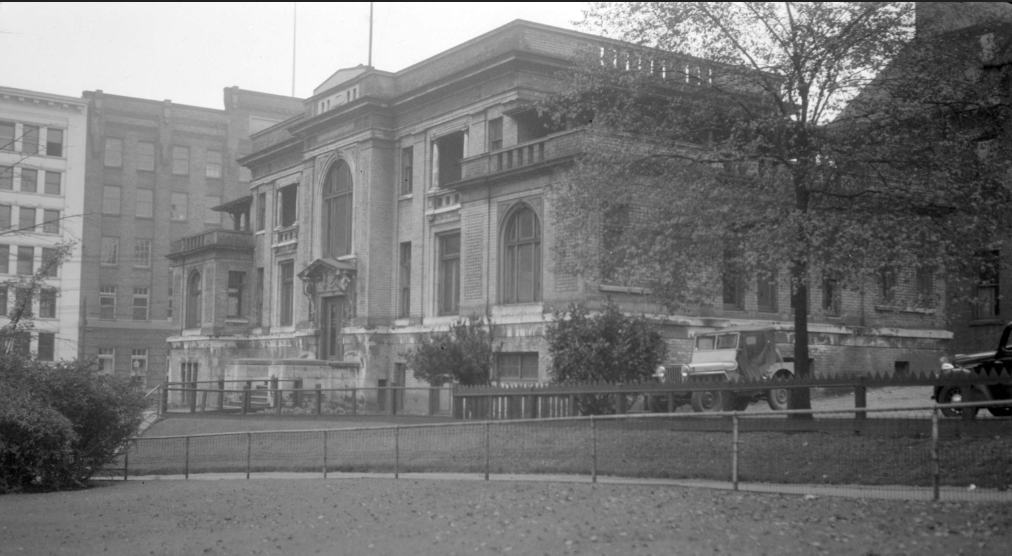
JFCB Vance from Blood, Sweat, and Fear had a lab in there from around 1912 when the police station on East Cordova was demolished until the new station opened in 1914. According to City Directories, a former hospital building became the “old people’s home” until 1915 when Social Services (the City Relief and Employment Department) moved in and stayed until the late ’40s.
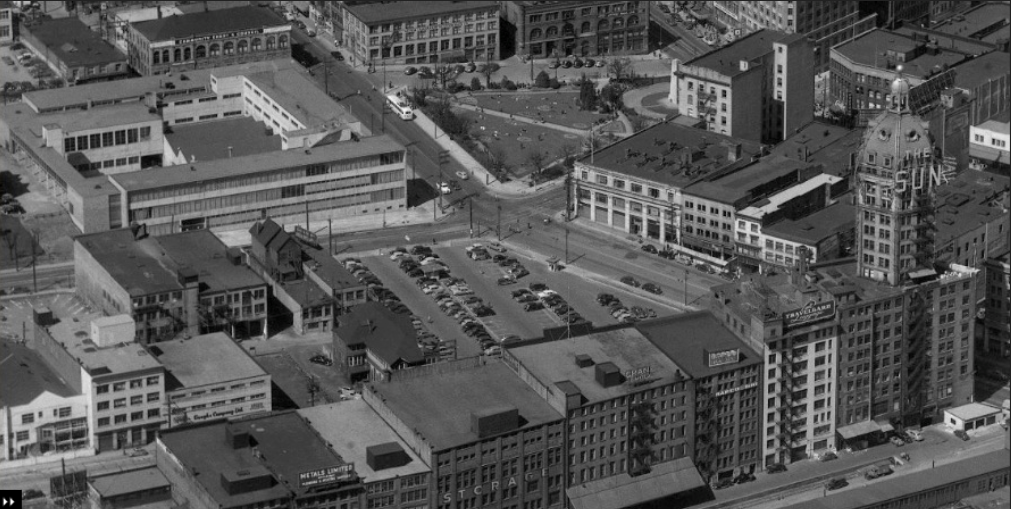
The city hospital buildings were gone by 1950 and now all that’s left is a plaque affixed to a parking lot.
Top photo: The first Vancouver Hospital in 1902. Courtesy CVA Bu P369
With thanks to Tom Carter for finding all these great photos and to Places That Matter for all the work that they do.
For more stories on our missing heritage buildings
© All rights reserved. Unless otherwise indicated, all blog content copyright Eve Lazarus.



5 comments on “Our Missing Heritage: Vancouver’s First Hospital”
Superb photos. And that TB ward – what a great building!
My grandmother was born in 1885, and with several of her brothers completed the “McGill Year” after completing high school here…She then left Vancouver and taught school in various locations until she married. The only one of her brothers who died in WWI didnt enlist until he had completed that year, and had he survived was set to go to McGill to complete his education as an engineer.
A surprisingly emotional post. It really stirs resentment to see what we much we lost and how precious little we gained on that memorable corner at Pender and Beatty.
And the old people’s home moved out to Boundary Road. That handsome building is still there.
It is curious that none of the on-line photos of the 1886 Vancouver General Hospital mention the name of its architect, Bahamas-born Allan Edward McCartney, whose profile is included in The Biographical Dictionary of Architects in Canada 1800-1950 (http://dictionaryofarchitectsincanada.org/node/674). The hospital is mentioned here on the list of the major buildings McCartney designed, which included the city’s first school and Catholic church. His architectural plans for the hospital are in the Matthews collection in the Vancouver City Archives but again not marked with his name. The city’s “missing heritage” seems to be more than buildings.